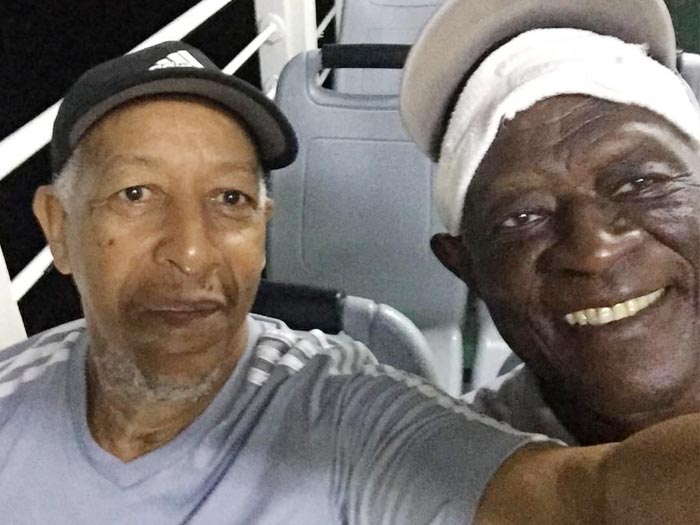“Unwavering dedication.”
“Ultimate trustworthiness.”
“Without his vision, the mission would not have been able to accomplish what it has.”
In addition to attesting that he is like a brother to him and that he was essentially responsible for securing the land on which the current campsite exists, Brother Al Bruce, cofounder of GO!, had these and other praiseworthy things to say about Brother Charles Petrie.
The relationship between Brother Al and Brother Charles goes back decades, as their fathers were best friends when the boys were growing up. Even when Brother Al left Guyana and settled in central New Jersey, Brother Petrie found himself not too far away, studying Engineering at the Teterboro School of Aeronautics (Moonachie, NJ). So, how did these two men, removed from their native land, come together as founder and cornerstone figure of a mission that serves the Guyanese people through Bible camps and community outreach?
Beginning in 2002, Brother Charles Petrie was instrumental in advancing the mission and purpose of GO! (then, Guyana Mission Outreach Program). In those early days, GO! partnered with the Wesleyan Church to expand the footprint and usage of Wesleyana Camp, a bible camp and training center located 15 miles outside of Georgetown, Guyana’s capital.
In attempting to renew the land lease that the Wesleyan church had already had with the government for 20 years, Brother Petrie realized that the camp was not fulfilling the mandated agricultural requirement. To correct this, he set about acquiring coconut trees to be planted around the perimeter of the site. These trees served multiple purposes: they met the agricultural criterion attached to the lease, created a visible border of the camp’s property, beautified the campus and also provided a much-needed source of income.
Overjoyed with Brother Petrie’s efforts and success on behalf of the camp, Brother Al convinced Petrie to stay on and help him be the eyes and ears, boots-on-the-ground, go-to person in Guyana to help him run the mission from the United States. So, despite the long journey from his hometown to the Wesleyana Bible Campsite – nearly 8 hours by bus and steamer – Petrie embraced his new role as Wesleyana liaison. Working closely with the Wesleyana Camp council, Petrie helped Wesleyana establish its own campsite. This was significant because previously it had had to lease space from other Bible camps. With the acquisition of the land, the camp now could rent out the site to other Bible camps, thereby generating a bit of income to help sustain its other projects. (link to GO! projects page)
When asked why he took on such a time-consuming and labor-intensive role, one in which he is often away from his family for days at a time, Petrie simply replied, “The CAMPS!” As a young boy, Petrie himself had attended Bible camp and had fond memories of his time spent with other youth who had bonded through their faith. These camp experiences led him in later years to run his own Bible camps. Brother Charles said he feels very strongly about the work of molding young lives and the importance of helping others develop their spirituality and form a relationship with God. He also admitted that he gets great satisfaction from witnessing some of the men who were under his employ eventually accept Christ as their Savior, and he felt privileged to be the one to baptize them.
“Life isn’t how we see it; it is how God directs it.”
Petrie explained that his own life experience has been one of the grace, kindness, mercy and love of God. And if he can say or do something to bring someone else to God, he will do it. So, getting involved with Wesleyana, where he could continue to make a difference in the lives of people who needed it most, seemed like the right thing to do.
At the close of the interview, we wanted to know Petrie’s vision for Wesleyana Bible Camp. He responded by reminding us of its beginnings; when he visited the site approximately 20 years ago, it was a merely a few run-down buildings on an undeveloped piece of land. Recalling that scene, Petrie marvels at its current state: extensive building renovations and additions, as well as the excavation and improvement of the land for agricultural projects and overall security and beautification. For the future, Petrie told us he envisions Wesleyana as an entity that will achieve self-sufficiency. He stressed that proper management is key. Yet, the right individual will have not only appropriate management experience, but also a keen interest in continuing the camp’s important work of shaping young lives.
Wesleyana Bible Camp has clearly been fortunate to have such a gifted, diligent and committed servant to help it realize its goals and positively impact the lives of so many. As Petrie humbly put it, “I am available to the Lord.” And we are humbly grateful to have him.

